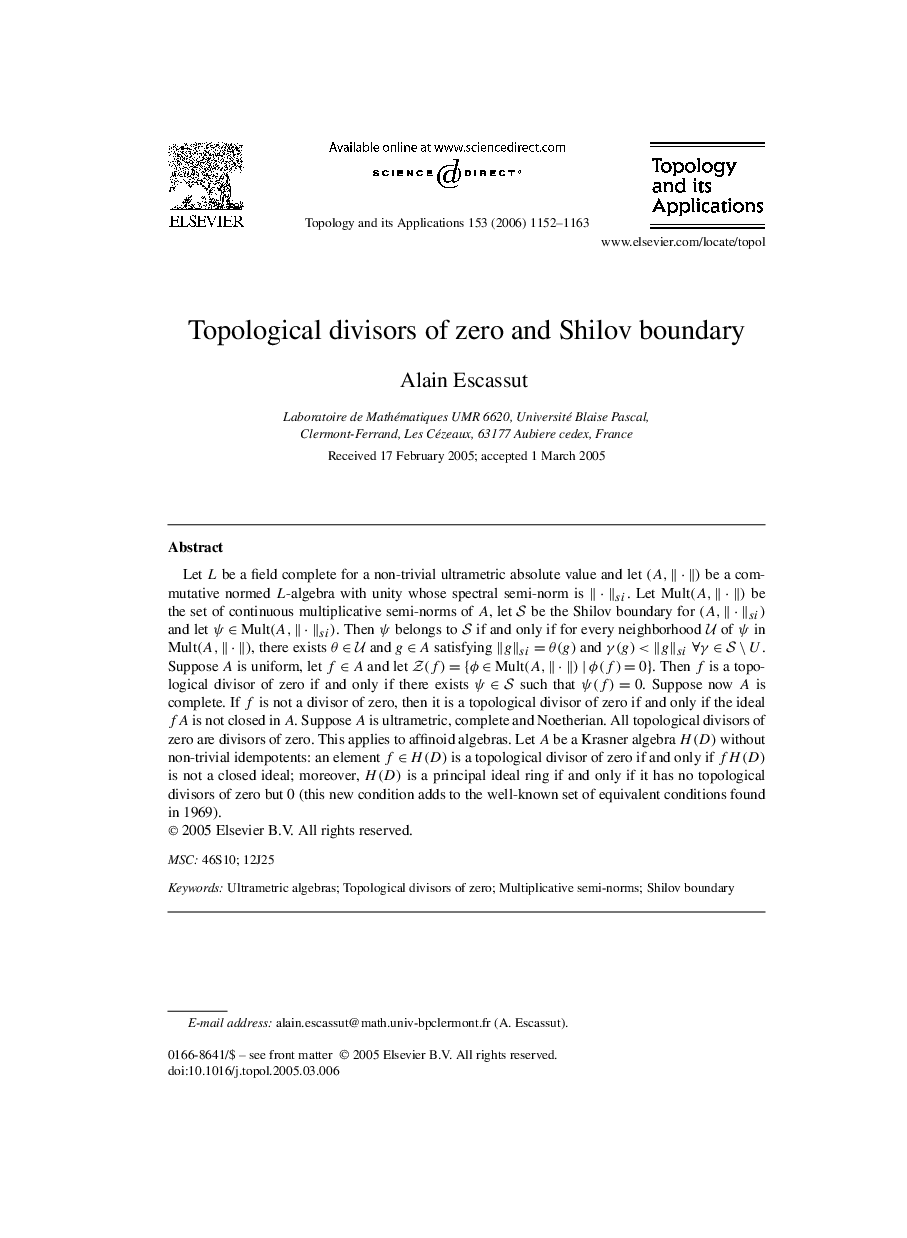| Article ID | Journal | Published Year | Pages | File Type |
|---|---|---|---|---|
| 4660869 | Topology and its Applications | 2006 | 12 Pages |
Let L be a field complete for a non-trivial ultrametric absolute value and let (A,‖⋅‖) be a commutative normed L-algebra with unity whose spectral semi-norm is ‖⋅‖si. Let Mult(A,‖⋅‖) be the set of continuous multiplicative semi-norms of A, let S be the Shilov boundary for (A,‖⋅‖si) and let ψ∈Mult(A,‖⋅‖si). Then ψ belongs to S if and only if for every neighborhood U of ψ in Mult(A,‖⋅‖), there exists θ∈U and g∈A satisfying ‖g‖si=θ(g) and . Suppose A is uniform, let f∈A and let Z(f)={ϕ∈Mult(A,‖⋅‖)|ϕ(f)=0}. Then f is a topological divisor of zero if and only if there exists ψ∈S such that ψ(f)=0. Suppose now A is complete. If f is not a divisor of zero, then it is a topological divisor of zero if and only if the ideal fA is not closed in A. Suppose A is ultrametric, complete and Noetherian. All topological divisors of zero are divisors of zero. This applies to affinoid algebras. Let A be a Krasner algebra H(D) without non-trivial idempotents: an element f∈H(D) is a topological divisor of zero if and only if fH(D) is not a closed ideal; moreover, H(D) is a principal ideal ring if and only if it has no topological divisors of zero but 0 (this new condition adds to the well-known set of equivalent conditions found in 1969).
